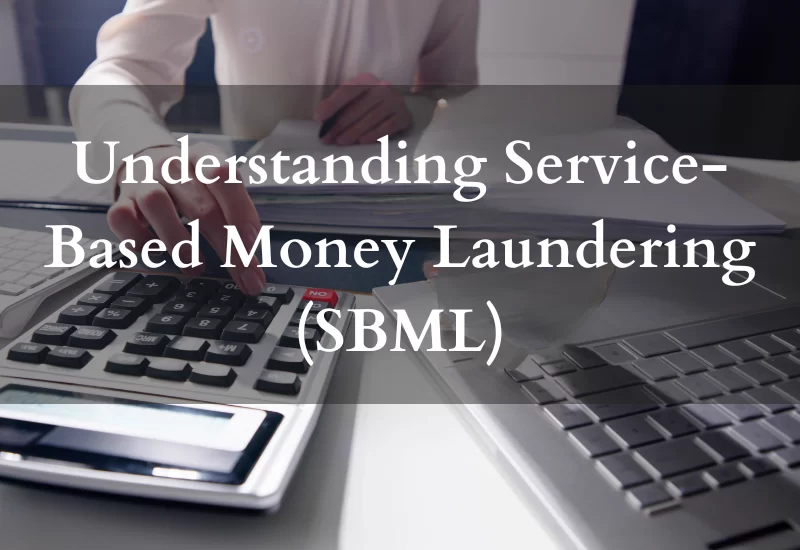- December 16, 2024
- Posted by: admin
- Categories: Business, Financial Services

Understanding Service-Based Money Laundering (SBML)
Money laundering is often associated with cash transactions or elaborate schemes involving banks. However, a less obvious method has gained prominence—Service-Based Money Laundering (SBML). This approach involves the misuse of legitimate services to disguise illegal funds, making detection significantly harder.
What is SBML?
SBML leverages professional services like accounting, legal consultations, or real estate transactions to launder money. Instead of dealing with physical cash or traditional banking systems, criminals use service providers to give their illicit funds a “clean” appearance.
For example, a criminal may overpay for a consulting service, where the service provider returns the excess payment. This “refund” now appears legitimate. Similarly, SBML often involves fake invoices, inflated service fees, or complex contractual arrangements designed to hide the true origin of funds.
Why Is SBML Hard to Detect?
Service-based schemes do not rely on cash deposits or suspicious transfers, which are easier to track. Instead, the focus shifts to documents, contracts, and professional networks. Since these services are legitimate on the surface, detecting laundering activities requires thorough due diligence and vigilance.
Key Indicators of SBML
- Overcomplicated Transactions: Unnecessarily complex contracts or agreements.
- Discrepancy in Services: Payment amounts that do not align with the service provided.
- Use of High-Risk Industries: Involvement of industries known for cash-heavy operations or vague services, like real estate consultancy.
- Unusual Client Behaviors: Reluctance to provide information or unusual urgency in closing deals.
Final Thoughts:
Service-Based Money Laundering is a sophisticated technique that exploits the credibility of professional services. By staying vigilant and adopting an effective compliance measure, businesses can play an important role in disrupting these schemes.
